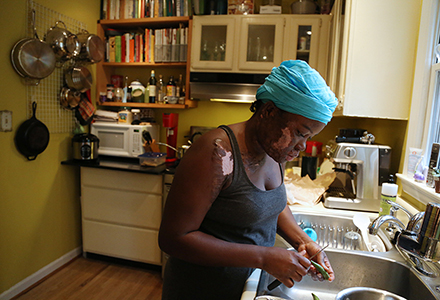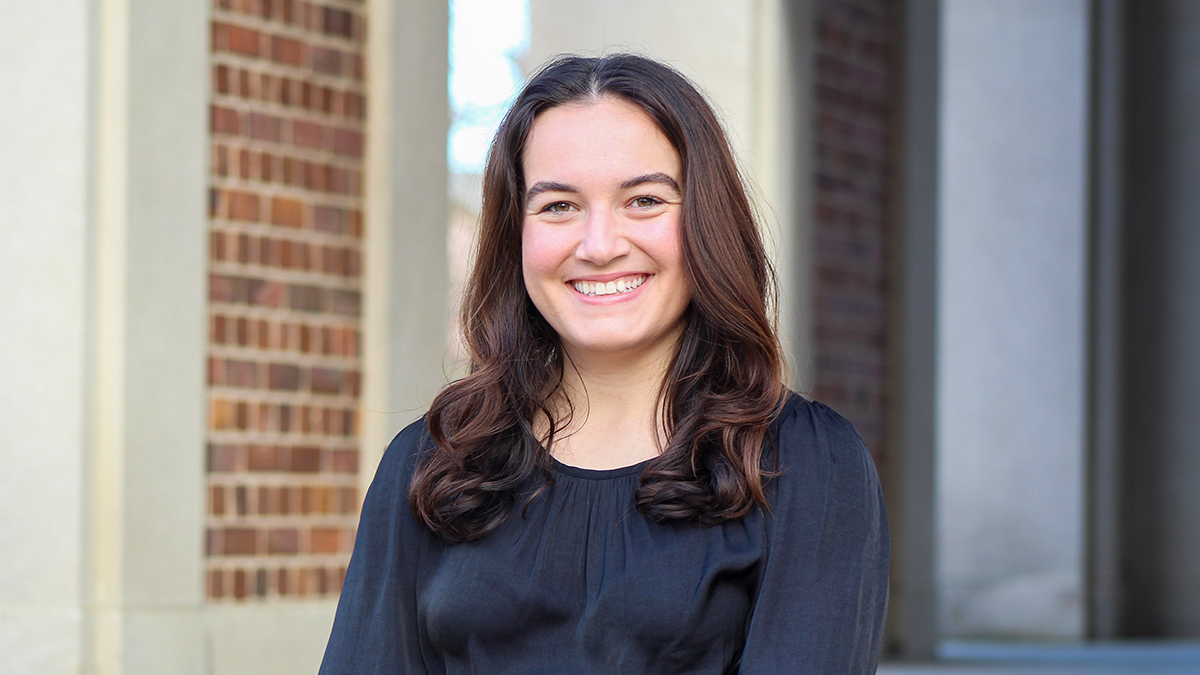Compassionate care and a taste of home
Carolina faculty is part of ongoing work to improve treatment for people affected by the Ebola outbreak and the lives of Ebola survivors.

At the Carrboro home of Dr. David Wohl, Patience Wesseh walks back and forth to the kitchen. Today – like most days – she’s making Fufu, a staple dish of her home of Monrovia, Liberia. Fufu is made with flour made from the cassava plant. It is sticky, the consistency of mashed potatoes. Typically, it is served alongside soup.
For today’s soup, Patience has skillfully butchered a whole fish, adding it to a pot of boiling water with a handful of fresh okra and several Scotch bonnet peppers.
“Most of the food that Patience makes, we would think is very spicy,” Wohl said. “She probably thinks I’m a wimp.”
Patience loves to cook. She enjoys reading. She’s learning to sew. She smiles warmly when asked to recount her recent 19th birthday party.
“It was so much fun,” she said, listing all of the friends who gathered at Wohl’s home for the celebration.
Wohl, associate professor in the division of Infectious Diseases, first met Patience in Monrovia when he and Billy Fischer, MD, assistant professor in the division of Pulmonary Diseases and Critical Care Medicine, were there as part of ongoing work to improve treatment for people affected by the Ebola outbreak and the lives of Ebola survivors. They made a connection with an American woman who had purchased ambulances to more efficiently transport Ebola patients. That woman, Katie Meyler, also founded and runs More than Me, the school for girls Patience attends.
While on a tour of the school, Wohl recalls Meyler pushing a very shy Patience to tell the visiting doctors what had happened to her, what had caused the scarring on her face and shoulders.
She had been burned.
To keep reading, please see UNC Health Care: http://news.unchealthcare.org/news/2015/december/taste-of-home




